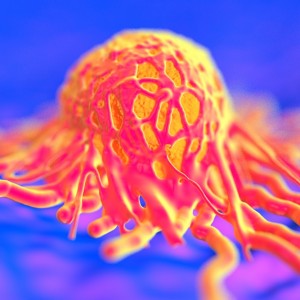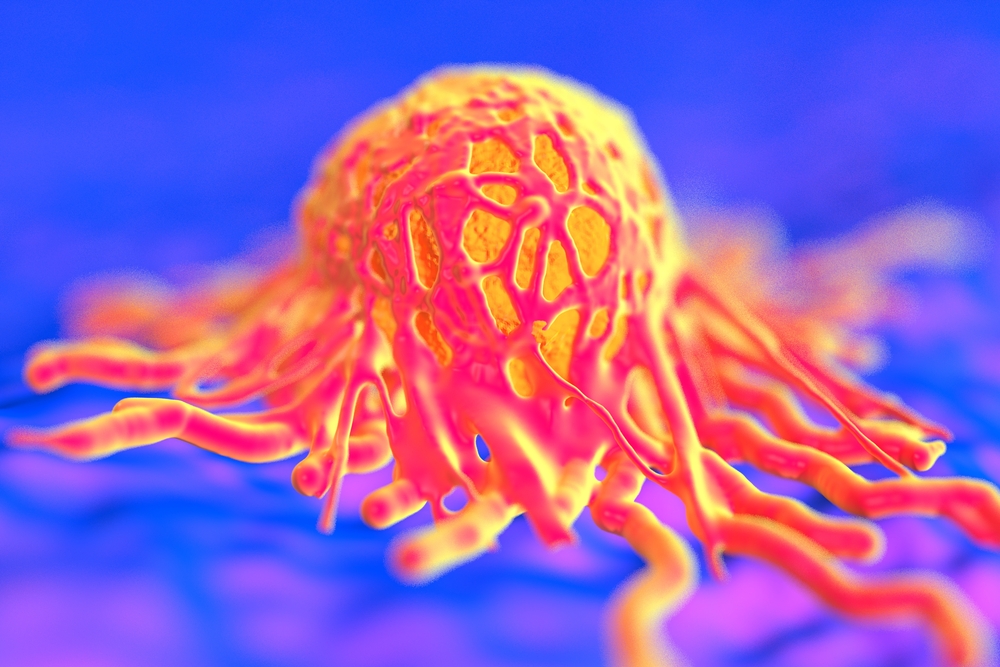 In several types of cancers, there is normally the expression of prototypic chitinase-like proteins, usually reflecting a poor prognosis even though its relevance for cancer progression is unknown.
In several types of cancers, there is normally the expression of prototypic chitinase-like proteins, usually reflecting a poor prognosis even though its relevance for cancer progression is unknown.
In a new study entitled “Role of Chitinase 3-like-1 and Semaphorin 7A in Pulmonary Melanoma Metastasis”, published in Cancer Research, a team of researchers from Brown University have found that increased serum levels of chitinase 3-Like-1 (CHI3L1) protein are associated with disease severity, poorer prognosis, and decreased survival in many human neoplasias, including breast cancer.
Chitinase 3-Like-1 (CHI3L1) protein, also called YKL-40, is a secreted 40 kDa glycoprotein that is upregulated in a number of human cancers and in non-neoplastic disease states characterized by chronic inflammation and tissue remodeling.
“We think everybody has Chitinase 3-like-1 (CHI3L1) in them because it plays a major role in our ability to fight off infections,” study author Dr. Jack A. Elias, dean of medicine and biological sciences at Brown University, said in a press release. “But one of the things this paper shows is that inducing this molecule seems to be very important in the ability of tumors to spread,” he added.
In this study, the team investigated if chitinase 3-Like-1 protein acts only a biomarker for cancer development or if it actually plays a role in cancer progression. Dr. Elias’ group had already studied this protein in the context of other diseases like idiopathic pulmonary fibrosis and asthma, and showed it played a crucial role in both conditions.
To address this hypothesis the authors injected breast cancer cells and malignant melanoma in mice models, and evaluated the level of cancer development in the lungs and skin after decreasing the levels of or inhibiting CHI3L1. They confirmed that, just like in humans, the levels of CHI3L1 were elevated in mice as cancer progresses. In the lung, the protein accumulated in cells that are adjacent to metastases, or nodules of cancer that have metastasized. They observed that in mice without CHI3L1, cancer cells metastasized less than in mice who produced normal levels of the protein. Furthermore, the research team used mice without a protein called semaphorin 7a, which seems to regulate CHI3L1. They observed that mice without semaphorin 7a expressed much less CHI3L1 and had less cancer metastases in the lungs.
It seems that Semaphorin 7a regulates CHI3L1 through the interaction with two intermediate proteins: ‘beta-1 integrin’ and ‘plexin C1.’ The first acts more as an inducer of CHI3L1 while plexin C1 acts as an inhibitor that decreases its production.
Dr. Elias said that the activation of the CHI3L1 pathway seems to allow metastases of two different cancers, in two different tissues, suggesting a wider role for this protein. “That leads us to believe this may be a fundamental pathway in the generation of metastases,” said Dr. Elias.
[adrotate group=”3″]
Dr. Elias added that more research is necessary for a better understanding of how CHI3L1 contributes for cancer progression and metastasis. “We know what molecules are involved in the triggering of this,” he said “We don’t know where they are and which of them are on the tumor and which are in the normal tissue around the tumor.”
The researchers hope that further studies are developed to address the role of CHI3L1 in other organs to investigate if it plays the same role as seen in the lung and skin. If there are more evidences that the deregulation of CHI3L1 is crucial for cancer metastases, the development of a drug or biologic treatment to restore its regulation would be a huge step in cancer treatment. Importantly, in the future this would be very useful in preventing cancer metastases after surgical removal of a patient’s main tumor. “If you treated them in this manner could it prevent or really delay the spread of the tumor and give the person a longer and better life? That’s the reason why we are excited about extrapolating these studies from the mouse to man.” concluded Dr. Elias.

